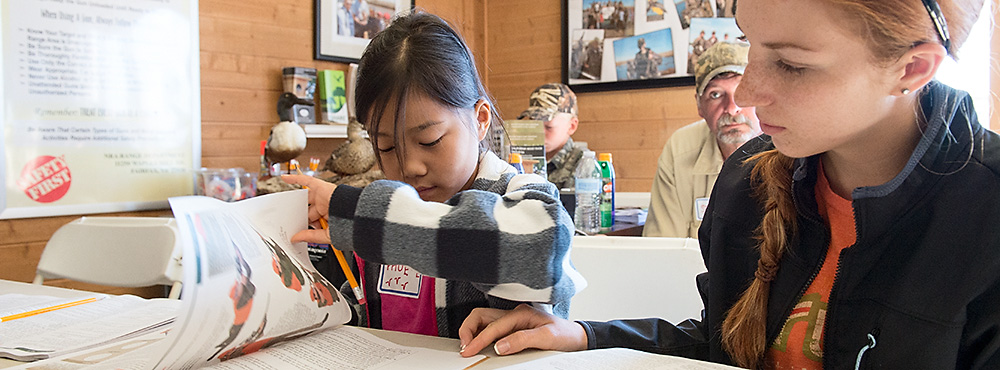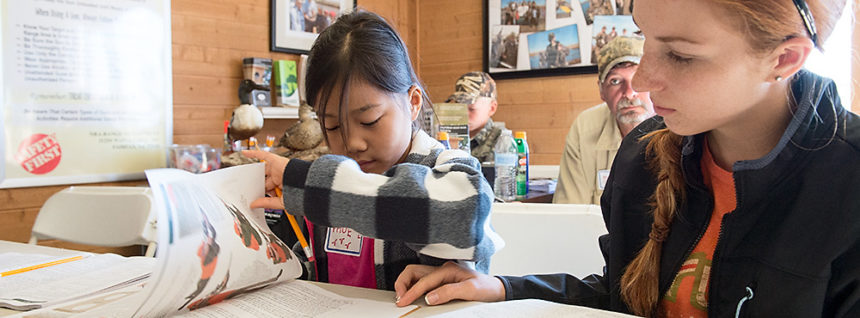
Sep 20, 2020
Advocacy: Sponsor Drops Camp Regulation Bill
 Here’s how we’re fighting for wetlands, waterfowl and hunting. Presented by Federal Premium Ammunition.
Here’s how we’re fighting for wetlands, waterfowl and hunting. Presented by Federal Premium Ammunition.
BY MARK HENNELLY, VICE PRESIDENT FOR LEGISLATIVE AFFAIRS AND PUBLIC POLICY
(Originally published in the Fall 2020 issue of California Waterfowl.)
• Hunters comment on Delta proposal
• Hope ends for nest-cover bill
SPEAKING UP TO AVOID COVID WILDLIFE-AREA CLOSURES
California Waterfowl and its Public Lands Hunters Committee entered into discussions earlier this year with California Department of Fish and Wildlife staff on ways to ensure access to public hunting areas when waterfowl season begins. It was hoped that early planning and preparation would help to avoid any closures or reduction in hunter quotas due to COVID-19 concerns.
It’s clear that DFW and U.S. Fish and Wildlife Service are making every effort to keep public hunting areas open this fall and winter. From what has been reported so far, here are some things we can generally expect:
•Masks and other social distancing requirements (e.g. staying 6 feet away from others at check stations) at all areas.
•Hunters will only be able to apply at one state or federal area on the lottery or first come, first served entry per day.
•RV camping may be restricted or prohibited.
•Lottery hours and check-in times in the morning may be adjusted as the season progresses.
•Hunters will be asked to stay in their vehicles until called by check station staff to check in or out.
Notwithstanding these general guidelines, it should be noted that county-specific COVID-19 regulations and local check station conditions could make hunter processing different at each refuge and wildlife area.
Watch calwaterfowl.org for news of developments at wildlife areas and refuges.
CWA, HUNTERS COMMENT ON DELTA PROPOSAL
A plan to restore tidal marsh areas in the 3,523-acre Franks Tract Recreation Area in the Sacramento/San Joaquin Delta is being developed by the California Department of Water Resources, California State Parks, DFW and other state and local agencies.
Franks Tract, which was created years ago by a levee breach, is popular with waterfowl hunters, anglers and boaters.
Several restoration options are being considered that proponents say would enhance the ecosystem, recreation and, especially, water quality values.
CWA’s main input has focused on the need to protect existing hunting areas and blinds.
Three main project alternatives – A, B and C – would include the creation of 1,200 to 1,300 acres of tidal wetlands and 250-plus acres of uplands from dredge materials. These habitats could eventually provide some local waterfowl breeding benefits. There is also a no-project option on the table.
Open-water hunting blinds would decrease from 54 now to about 20 under alternative A, B and C. However, there would likely be new free-roam areas and new marsh blinds once the marsh vegetation matures.
Construction alone is expected to take four to six years. There is no total cost estimate yet, but just the dredging expenses could total $37 million.
REPORTS FROM THE CAPITOL
The Legislature was scheduled to adjourn after this magazine went to press. Here is the status of key bills as of mid-August. Click here for updates. The governor has until Sept. 30 to sign, veto or allow passed bills to become law without his signature. To stay informed, sign up for action alerts here. We’ll make it easy for you to contact the governor’s office about bills of concern to the waterfowling community.

California Waterfowl hosts many camps that teach aspiring waterfowl hunters the nuts and bolts of hunting and conservation. CWA fought against a bill that would have put severe restrictions on youth camps in California. CWA FILE PHOTO
SPONSOR DROPS CAMP REGULATIONS BILL
A bill that CWA has actively opposed, SB 217 (Portantino), was recently dropped by the bill’s author. The bill’s cumulative requirements and costs would have effectively halted CWA’s outdoor camps.
SB 217 would have mandated that each outdoor camp obtain a license and pay a fee to a local agency. It also would have forced each camp to employ both a camp director and a health director, who would be subject to specific requirements.
In addition to authorizing a local agency to shut a camp down for a variety of reasons, the bill also required both the state public health officer and fire marshal to adopt new rules and regulations governing the operation of recreational camps.
Further, SB 217 stipulated that buildings used for overnight stays meet certain construction standards, including a ventilation system capable of providing negative air pressure, a technology used in hospitals to isolate airborne contaminants. The bill also went as far as to arbitrarily mandate a certain ratio of camp counselors per students in certain age groups.
It’s possible that SB 217 will show up again next year. CWA will continue to fight the bill if it re-emerges.
CWA FIGHTS BARRAGE OF ANTI-HUNTING BILLS
AB 3030 (Kalra) a bill that would have made it state policy to “protect” at least 30% of its land and water area, died in the Senate Appropriations Committee on Aug. 21. The bill did not recognize that hunting and fishing were compatible with land protection. Therefore, the bill could have led to restrictions and closures to hunting and fishing areas. California already has numerous waterfowl sanctuaries, game refuges and marine protected areas, while hunting and fishing is heavily regulated via annual seasons and bag limits based on science. There is no demonstrated need for new closed areas. By potentially restricting public hunting opportunity, the bill also ran counter to hunting recruitment, retention and reactivation (R3) efforts.
SB 1175 (Stern) would prohibit the possession of some African game-animal parts by creating a new “Iconic African Species” designation. CWA believes this sets a dangerous precedent of arbitrarily banning the possession of game harvested legally outside of California. In addition, the bill’s significant costs of enforcement – $3.6 million in one-time costs and $7.9 million in ongoing costs – would leave considerably fewer resources for DFW’s traditional enforcement of laws protecting California’s own native game and fish species.
Fortunately, numerous other conservation and hunting groups are opposing SB 1175, and CWA is coordinating our lobbying efforts with the groups
HOPE ENDS THIS SESSION FOR A NEST-COVER FUNDING BILL
Our efforts to provide start-up funding for the Nesting Bird Habitat Incentive Program were thwarted in August when the bill was held up in the Senate Appropriations Committee.
AB 2106, by Assembly Member Cecilia Aguiar-Curry (D-Winters), would have imposed a $5 surcharge on state Duck and Upland Game Bird validations. The money would have provided incentives to farmers and other private landowners, such as duck clubs, to maintain or enhance nesting cover to especially benefit our local mallards and pheasants. Land adjacent to brood water, such as flooded rice fields or spring-summer wetlands, would have been given priority.
Funds also would have been used for nest-cover enhancement work on state wildlife areas and federal refuges. The bill had passed the state Assembly 73-0 in June but died in committee Aug. 21.


